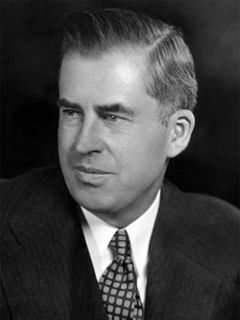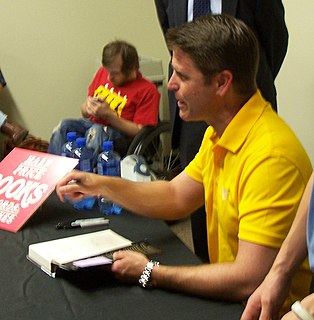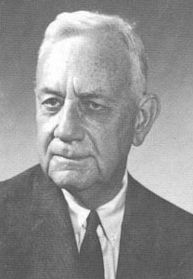A Quote by Jeffrey Rosen
[Louis] Brandeis, like [Tomas] Jefferson, is an equal opportunity critic of bigness. And he, like Jefferson, sees American history as this incredible clash between small producers, farmers, and small business people on the one hand, and wicked oligarchs and financiers and monopolists on the other.
Related Quotes
That strain of anti-monopoly crusading egalitarianism really runs throughout American history from [Tomas] Jefferson to Woodrow Wilson, that finds its apotheosis in [Louis] Brandeis, continues through the New Deal, but then it sort of peters out in the '60s because progressives in particular become more interested in extending equality to minorities, and women, and other excluded groups, and little more suspicious of these old white guys, often from the south, who were crusaders against monopolies.
[John] Adams's perception of Europe, and especially France, was clearly different than [Tomas] Jefferson's. For Jefferson, the luxury and sophistication of Europe only made American simplicity and virtue appear dearer. For Adams, by contrast, Europe represented what America was fast becoming - a society consumed by luxury and vice and fundamentally riven by a struggle between rich and poor, gentlemen and commoners.
[Tomas] Jefferson is more out of fashion, both because of his views on race, where he's properly questioned, that part of his legacy, but also because the libertarian critique of bigness in business and government, the idea that size is a danger is something that's shared on the right when it comes to government and on the left when it comes to corporations, but not both.
But the fascinating and unbelievable-but-true thing about Dr. Jefferson Jeffersonis that he was not a doctor of any kind. He was just an orange juice salesman named Jefferson Jefferson. When he became rich and powerful, he went to court, made "Jefferson" his middle name, and then changed his first name to "Dr." Capital D. Lowercase r. Period.
[John Adams and Tomas Jefferson] shared experience in 1775 - 1776 in bringing about the separation from Britain and their service in Europe cemented a friendship that in the end withstood the most serious political and religious differences that one could imagine, especially their differences over the French Revolution. It was probably Jefferson's obsession with politeness and civility that kept the relationship from becoming irreparably broken.
They said, OK, nine [Louis] Brandeis's is too much, but one is OK. So, with friends like that, and so forth. But, yes, the idea that because he was Jewish he would rule a particular way was an ugly undercurrent of the hearings, which resonates with current claims that a judge can't be impartial because of his or her background or ethnicity or race. It's, I guess, a small comfort that in the end the Brandeis vote wasn't close.



























